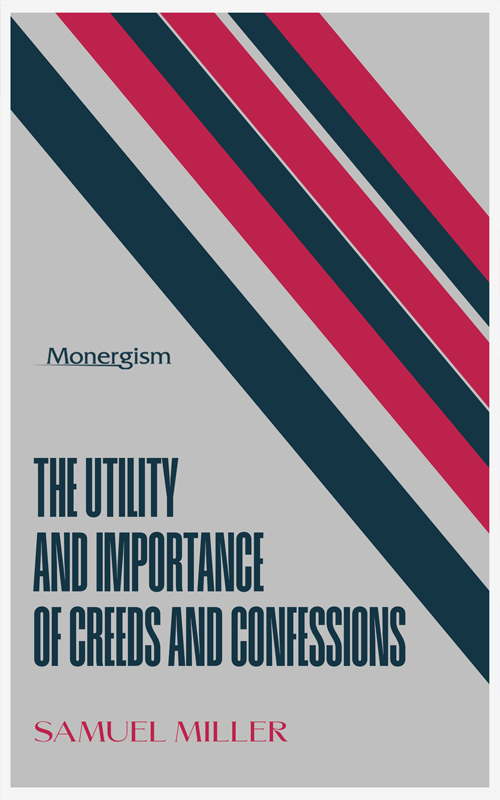 by Samuel Miller
by Samuel Miller
In epub, mobi & .pdf formats
Introduction
The character and situation of one who is preparing for the sacred office are interesting beyond the power of language to express. Such a one, like the Master whom he professes to love and serve, is "set for the fall and rising again of many in Israel" (Luke 2:34). In all that he is, and in all that he does, the temporal and eternal welfare not only of himself, but of thousands, may be involved. On every side he is beset with perils. Whatever may be his talents and learning, if he has not genuine piety, he will probably be a curse instead of a blessing to the church. But this is not the only danger to which he is exposed. He may have unfeigned piety, as well as talents and learning; and yet, from habitual indiscretion; from a defect in that sobriety of mind, which is so precious to all men, but especially to every one who occupies a public station; from a fondness for novelty and innovation, or from that love of distinction which is so natural to men; after all, instead of edifying the "body of Christ," he may become a disturber of its peace, and a corrupter of its purity; so that we might almost say, whatever may be the result with respect to himself, "it had been good for the church if he had never been born" (cf. Matt. 26:24).
Hence it is, that every part of the character of him who is coming forward to the holy ministry, his opinions, his temper, his attainments, his infirmities, and above all, his character as a practical Christian, are of inestimable importance to the ecclesiastical community of which he is destined to be a minister. Nothing that pertains to him is uninteresting. If it were possible for him, strictly speaking, to "live to himself," or to "die to himself" (cf. Rom. 14:7), the case would be different. But it is not possible. His defects as well as his excellencies, his gifts and graces, as well as the weak points of his character, must and will all have their appropriate effect on everything that he touches.
Can you wonder, then, that employed to conduct the education of candidates for this high and holy office, we see ourselves placed under a solemn, nay, an awful responsibility? Can you wonder that, having advanced a little before you in our experience in relation to this office, we cherish the deepest solicitude at every step you take? Can you wonder, that we daily exhort you to "take heed to yourselves and your doctrine" (cf. 1 Tim. 4:16), and that we cease not to entreat you, and to pray for you that you give all diligence to approve yourselves to God and his church able and faithful servants? Independently of all official obligation, did we not feel and act thus, we should manifest an insensibility to the interests of the church, as well as to your true welfare, equally inexcusable and degrading.
It is in consequence of this deep solicitude for your improvement in every kind of ministerial furniture, that we not only endeavor to conduct the regular course of your instruction in such a manner as we think best adapted to promote the great end of all your studies; but that we also seize the opportunity which the general Lecture (introductory to each session) affords us, of calling your attention to a series of subjects which do not fall within the ordinary course of our instruction.
A subject of this nature will engage our attention on the present occasion: namely, the importance of creeds and confessions for maintaining the unity and purity of the visible church.
This is a subject which, though it properly belongs to the department of Church Government, has always been, for want of time, omitted in the Lectures usually delivered on that division of our studies. And I am induced now to call your attention to it, because, as I said, it properly belongs to the department committed to me; because it is in itself a subject highly interesting and important; because it has been for a number of years past, and still is, the object of much severe animadversion on the part of latitudinarians and heretics; and because, though abundantly justified by reason, scripture, and universal experience, the spontaneous feelings of many, especially under the free government which it is our happiness to enjoy, rise up in arms against what they deem, and are sometimes pleased to call, the excessive "rigor" and even "tyranny" of exacting subscription to articles of faith.
It is my design, first, to offer some remarks on the utility and importance of written creeds; and secondly, to obviate some of the more common and plausible objections which have been urged against them by their adversaries.
-----
Table of Contents
Introduction
Arguments in Favor of Creeds
- Unity
- To Guard the Truth
- A Tribute to Truth and Candor
- To Study Doctrine
- Necessary to Guard Against Heresy
Answers for Objections to Creeds
The Extent of Creeds
Concluding Remarks
